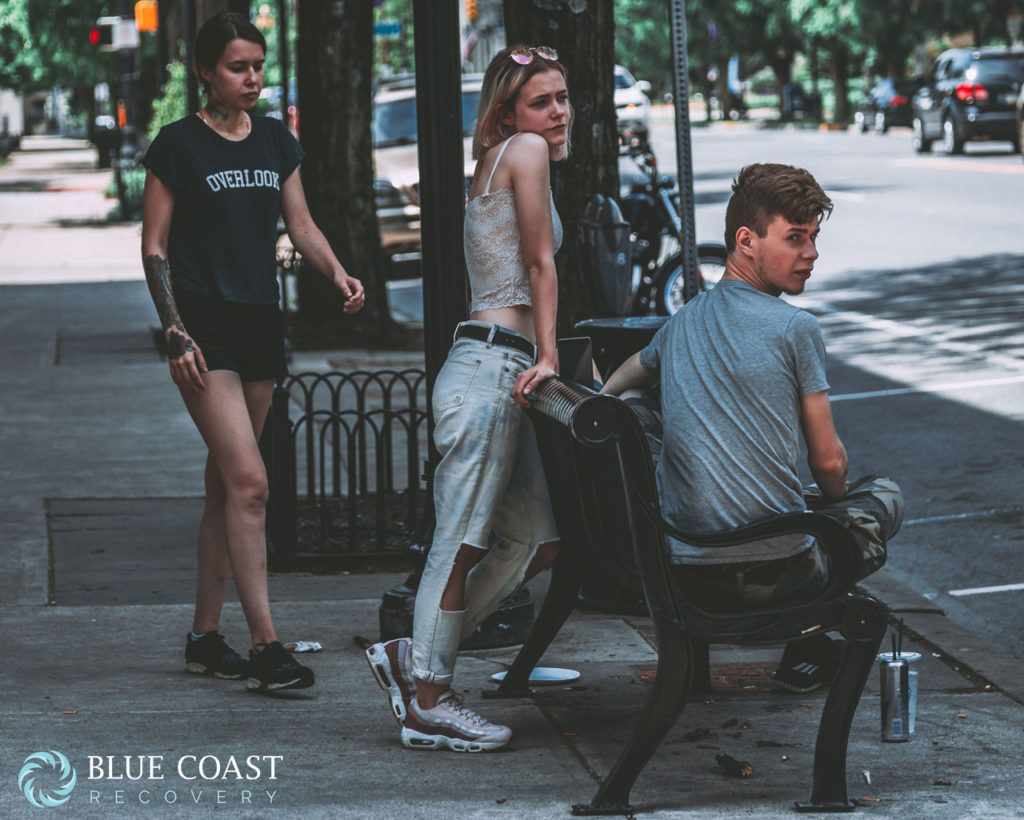Addiction is ugly and brutal and completely undesirable. Given its toxic nature, it’s hard to decide if we’d rather addiction manifest at random or accept that some people are more likely to develop an addiction.
Neither option is ideal. But knowledge of factors that could influence the likelihood of addiction might be crucial in treatment and prevention. The magnifying glass is coming down on the link between social factors and addiction.
America’s Addiction Profile
The United States has a very alarming addiction profile. About 19.7 million American adults struggled with a substance use disorder in 2017, according to the National Survey on Drug Use and Health.
Of this extreme amount of people struggling with substance addiction, were some of them pre-destined for the struggle?
Many addiction experts and political leaders generally classify addiction as “equal opportunity.” The cognizance that links exist between addiction and social factors, genetics, and home environment is absent in the nation’s policies for the most part.
Narrowing in on Social Factors and Addiction
Within the nation’s opioid crisis, West Virginia has the highest rate of drug deaths. West Virginia’s rate of 49.6 overdose deaths involving opioids per 100,000 people is three times higher than the national average.
Dr. Rahul Gupta, the public health commissioner for the state, had his staff look into each of these drug deaths. His goal was to know exactly who was dying and identify the risk factors in attempt to combat the crisis.
Gupta’s Findings on Social Factors and Overdose:
“If you’re a male between ages 35 to 54, with less than a high school education, you’re single and you’ve worked in a blue-collar industry, you pretty much are at a very, very high risk of overdosing.”
Privilege’s Role in Preventing Death
Addiction and overdose do exist in more privileged communities. But there’s no denying that marginalized communities are at higher risk. One of the primary factors involved is the access to support and treatment.
Privileged communities typically offer better access to education, resources, and treatment. So it makes sense that Gupta’s overdose death profile falls at the other end of the privilege spectrum.
What it comes down is that the resources available to people who are more well-off need to be created for those who are not. Addicts have the ability to change their behaviors. However, they are much less likely to change their behaviors if their circumstances don’t change.
Can Harm Reduction Help?
Harm reduction is at the top of the list for changeable circumstances. We can’t wave a magic wand and perform a 180-degree flip on a person’s societal circumstances. But we can provide better options for positive change.
Harm reduction has long been a controversial issue in the recovery community. However, there is hard evidence for its success. One study looked at a particular “wet house” in Seattle. The house was established as a residence for some of Seattle’s least well-off: homeless alcoholics. Unlike other shelter homes, the wet house’s residents were allowed to keep drinking. Surprisingly, the residents dropped the number of daily drinks they consumed by 40% over two years. On top of that, the occurrence of particular deadly withdrawal symptoms also declined by more than half.
Susan Collins, assistant professor of psychiatry at the University of Washington, shares that the participants in this study explained that they were happy to have a home instead of relying on constantly drinking to stay warm or numb themselves to their circumstances.
While we’d like to hold onto hope, it’s not practical to assume that the people struggling with substance abuse at the lower end of societal privilege can reverse their addiction completely. But, as the Seattle wet house study shows, better access to resources that would allow these people to live better lives could very well be what we need to chip away at the link between social factors and addiction.
If you or someone you know is struggling with substance abuse, our addiction counselors are available 24/7: 714-203-2708




